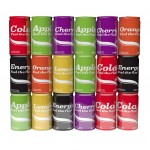
There is a well-established association between sugar and dental caries which was reinforced in a recent systematic review by Moynihan and Kelly (Dental Elf 12th Dec 2013). S ugar-sweetened beverages (SSB) which have sucrose (table sugar), high-fructose corn syrup or fruit- juice concentrates, either as purchased or added after purchase have seen sales and consumption increase significantly in recent decades. SSB consumption has been linked to obesity, diabetes and cardiovascular disease but evidence in relation to caries has been less consistent. The main aim of this study was to explore the association between frequency of SSB consumption and caries increment over 4 years in adults.
Data from 939 dentate adults who participated in both the Health 2000 Survey and the Follow-Up Study of Finnish Adults’ Oral Health were analysed.
At baseline, participants provided information on demographic characteristics, education and dental behaviours, including two questions on frequency of SSB consumption. The 4-year net DMFT increment was calculated using data from baseline and follow-up clinical oral examinations.
The association was tested in negative binomial regression models and the moderating role of sex, age, education and use of fluoride toothpaste was examined by adding their two-way interaction with SSB consumption to the main effects model.
- A positive association was found between frequency of SBS consumption and 4-year net DMFT increment, regardless of participants’ socio-demographic and behavioural characteristics.
- Adults drinking 1-2 and 3+ SSB daily had, respectively, 31% (Incidence Rate Ratio: 1.31; 95%CI: 1.02-1.67) and 33% (IRR: 1.33; 95%CI; 1.03-1.72) greater net DMFT increments than those not drinking any SSB
- Incidence Rate Ratios (IRRs) and 95% confidence intervals for the 4 models used are shown in the table below:-
| 0 SSB/day | 1–2 SSB/day | 3+ SSB/day | |
| Unadjusted | 1.00 (Reference) | 1.37 (1.07–1.74) | 1.47 (1.14–1.88) |
| Adjusted for demographic (sex and age groups | 1.00 (Reference) | 1.31 (1.03–1.68) | 1.39 (1.08–1.80) |
| Additionally adjusted for socioeconomic factors (education level) | 1.00 (Reference) | 1.30 (1.01–1.66) | 1.36 (1.05–1.75) |
| Further adjusted for dental attendance pattern, toothbrushing frequency and use of fluoride toothpaste | 1.00 (Reference) | 1.30 (1.02–1.66) | 1.33 (1.03–1.72) |
The authors concluded
There seems to be a dose–response relationship between frequency of SSB consumption and caries increment in adults. That association was consistent across socio-demographic characteristics, and more importantly, use of fluoride toothpaste.
Comment
The results of this study suggest that SSB consumption is a risk factor for dental caries in adults. However as the authors caution the challenges in this type of study in measuring the exposure (consumption) of SSB as this was self-reported. It is also not clear whether this was ascertained at more that one time point during the study period.
Links
Bernabé E, Vehkalahti MM, Sheiham A, Aromaa A, Suominen AL. Sugar-sweetened beverages and dental caries in adults: A 4-year prospective study. J Dent. 2014 May 9. pii: S0300-5712(14)00119-5. doi: 10.1016/j.jdent.2014.04.011. [Epub ahead of print] PubMed PMID: 24813370.
